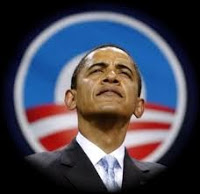 |
| image source |
Susan Boskey
Activist Post
In his address to the nation, September 10 2013, President Obama backed off on attacking Syria but still reserves the right to do so if diplomacy fails.
…I’m also the President of the world’s oldest constitutional democracy. So even though I possess the authority to order military strikes, I believed it was right, in the absence of a direct or imminent threat to our security, to take this debate to Congress.
Like President Bush before him, President Obama makes it easy to blame him. Maybe it just takes too much effort to recall that nothing happens in a vacuum including presidents whose actions don’t reflect the will of the people. Events in nature and the world of humans are always informed by what came before. What came before in America are event after event resulting in the consolidation of power in the hands of a few.
Here’s the deal, one small example of the world we live in. President Obama can legally make a unilateral call for war given the Authorization for the Use of Military Force (AUMF). Passed by Congress after 9/11 as an emergency statute without restrictions, it is still in force. Recently, military officials at a May 16, 2013 meeting of the Senate Armed Services Committee lobbied for an open-ended extension of AUMF. It authorizes the president to put United States military boots on the ground anywhere in the world including the United States.
S.J.Res. 23 (107th): Authorization for Use of Military Force
(a) IN GENERAL- That the President is authorized to use all necessary and appropriate force against those nations, organizations, or persons he determines planned, authorized, committed, or aided the terrorist attacks that occurred on September 11, 2001, or harbored such organizations or persons, in order to prevent any future acts of international terrorism against the United States by such nations, organizations or persons.
The big picture, however, reveals the roll-out of an impersonal operating system. Systems are either natural like the solar system or man-made like the U.S. Government installed via the Constitution of 1787. Man-made systems have the power to mold the thinking and behavior of those who function within them, and for generations. We miss the forest for the trees.
In 1971 Philip Zimbardo, professor Emeritus of Psychology at Stanford University, conducted what is now known as the Stanford Prison Experiment. He hoped to learn how good people could end up doing bad things. The simulated prison experience was held at the university and planned to last 24 hours a day for 14 days.
Professor Zimbardo carefully selected 24 undergraduate students who were of sound body and mind and to whom he agreed to pay $15 a day for their participation. These “normal” students were divided into those who would play the role of prison guard and those who would play the role of inmate. The guards had to demonstrate control and command over the inmates. What happened was fascinating. Briefly, the “guards” acted so cruelly towards the “inmates” and the “inmates” suffered so much that the experiment had to be shut down after only six days.
 Evaluating the experiment’s outcome, Professor Zimbardo concluded it was these types of situations that turned ordinary people evil. In his book, The Lucifer Effect, he reflected, “Only a few people were able to resist the situational temptations to yield to power and dominance while maintaining some semblance of morality and decency; obviously I was not among that noble class.”
Evaluating the experiment’s outcome, Professor Zimbardo concluded it was these types of situations that turned ordinary people evil. In his book, The Lucifer Effect, he reflected, “Only a few people were able to resist the situational temptations to yield to power and dominance while maintaining some semblance of morality and decency; obviously I was not among that noble class.”
Bottom line: a societal framework, i.e. a closed system such as a prison, corporation, family, government system, etc., can influence and radically shape a person’s personality and behavior for the worse. This is how good people end up doing bad things. Of course, the opposite is also true that a societal framework could influence and radically shape a person’s personality and behavior for the better.
With the Constitution of 1787, America gained a centralized system that separated government into three branches: judicial, legislative and executive. Up until this time, the Articles of Confederation and Perpetual Union, America’s first constitution, deliberately kept the legislative and executive branches joined as one. This, along with the decentralization of the original 13 autonomous states, was done consciously to safeguard early Americans against a repeat of the imperial powers of a king.
The long-term implications of the separation of legislative and executive powers of a centralized government had either been entirely misunderstood or completely understood. “The Address and Reasons of Dissent of the Minority of the Convention of Pennsylvania to their Constituents,” December 12, 1787, registered concerns of those who saw the potential problems ahead.
The president is to have the control over the enacting of laws, so far as to make the concurrence of two-thirds of the representatives and senators present necessary, if he should object to the laws. Thus it appears that the liberties, happiness, interests, and great concerns, of the whole United States, may be dependent upon the integrity, virtue, wisdom and knowledge of twenty-five or twenty-six men. How inadequate and unsafe a representation! Inadequate, because the sense and views of three or four million of people diffused over so extensive a territory, comprising such various climates, products, habits, interests, and opinions, can not be collected in so small a body.
What’s more, the power of the executive branch was augmented under the Constitution since a President of the United States has responsibility for two offices: head of government and head of state. Saddam Hussein, Moammar Kaddafi, Adolph Hitler and Benito Mussolini also held both presidential offices. In 1939 as Chancellor of Germany, Adolph Hitler had skillfully pulled Germany out of the World War I economic crisis making true believers out of millions of Germans. With the powers of both head of government and head of state, and given thousands of unquestioning supporters, he wielded a free hand one baby-step after another towards his legacy of the twentieth century’s most unthinkable atrocity.
People will believe a big lie sooner than a little one; and if you repeat it frequently enough people will sooner or later believe it. — “A Psychological Analysis of Adolph Hitler, His Life and Legend,” Walter C. Langer, Office of Strategic Services (OSS), Washington, D.C., 1943
 Add to this that nowhere in the second constitution was a President of the United States granted explicit power to unilaterally make laws, i.e. executive orders. Articles I and II state that all legislative power is with Congress and the executive power is with the president. Yet according to the Congressional Research Service, executive orders arise from “implied” constitutional and statutory authority and are made legal when documented in the Federal Registrar.
Add to this that nowhere in the second constitution was a President of the United States granted explicit power to unilaterally make laws, i.e. executive orders. Articles I and II state that all legislative power is with Congress and the executive power is with the president. Yet according to the Congressional Research Service, executive orders arise from “implied” constitutional and statutory authority and are made legal when documented in the Federal Registrar.
Over time, this caveat for executive orders has led the executive branch to enjoy a status above reproach. Like the impotent legislators of Julius Caesar’s first-century cabinet, so are modern-day Congressional legislators in the matter of executive orders. Only twice in American history have legislators vetoed an executive order, once under President Harry S. Truman and the other time under President Bill Clinton. President Obama’s 2012 campaign slogan, “We can’t wait,” helped further advance the acceptability of executive orders but, rest assured, he is only the most recent of the presidents to exploit “implied” presidential powers.
I cannot accept your canon that we are to judge Pope and King unlike other men, with a favourable presumption that they did no wrong. If there is any presumption it is the other way, against the holders of power, increasing as the power increases. Historic responsibility has to make up for the want of legal responsibility. Power tends to corrupt, and absolute power corrupts absolutely. Great men are almost always bad men, even when they exercise influence and not authority, still more when you superadd the tendency or the certainty of corruption by authority. There is no worse heresy than that the office sanctifies the holder of it. — Lord Acton, English politician, historian and writer 1837- 1869
An American president of inordinate powers is but the product of a centralized government system. All centralized systems move in the direction of increased consolidation of power and control to accomplish its overriding objective of self-preservation. In this regard, the United States behaves more like a corporation than a government of by and for the people. Its survival depends on strategies capable of strengthening the perpetuity of the U.S. government entity; the government prioritizes, protects and supports its funding sources and commercial partners.
When dictators commit atrocities, they depend upon the world to look the other way … — President Barack Obama, September 10, 2013
Once viewing facts from outside the matrix it is easy to see that, hidden in plain view, tyranny rises as the ever-increasing unilateral powers of the President of the United States. Perhaps the degradation of the lives of everyday Americans is but a preview of coming attractions. In the country of the world’s largest prison population but promoted as the world’s greatest democracy, is anyone paying attention?
Democracy passes into despotism. — Plato 427 BC-347 BC
Susan Boskey, freelance researcher and writer, is author of the book, The Quality Life Plan®: 7 Steps to Uncommon Financial Security www.AlternativeFinancialNow.com and more recently helped bring to market the important book, Beyond the National Myth: waking up in the land of the free www.nationalmyth.org


Be the first to comment on "Dictator Rising but Don’t Blame the President"